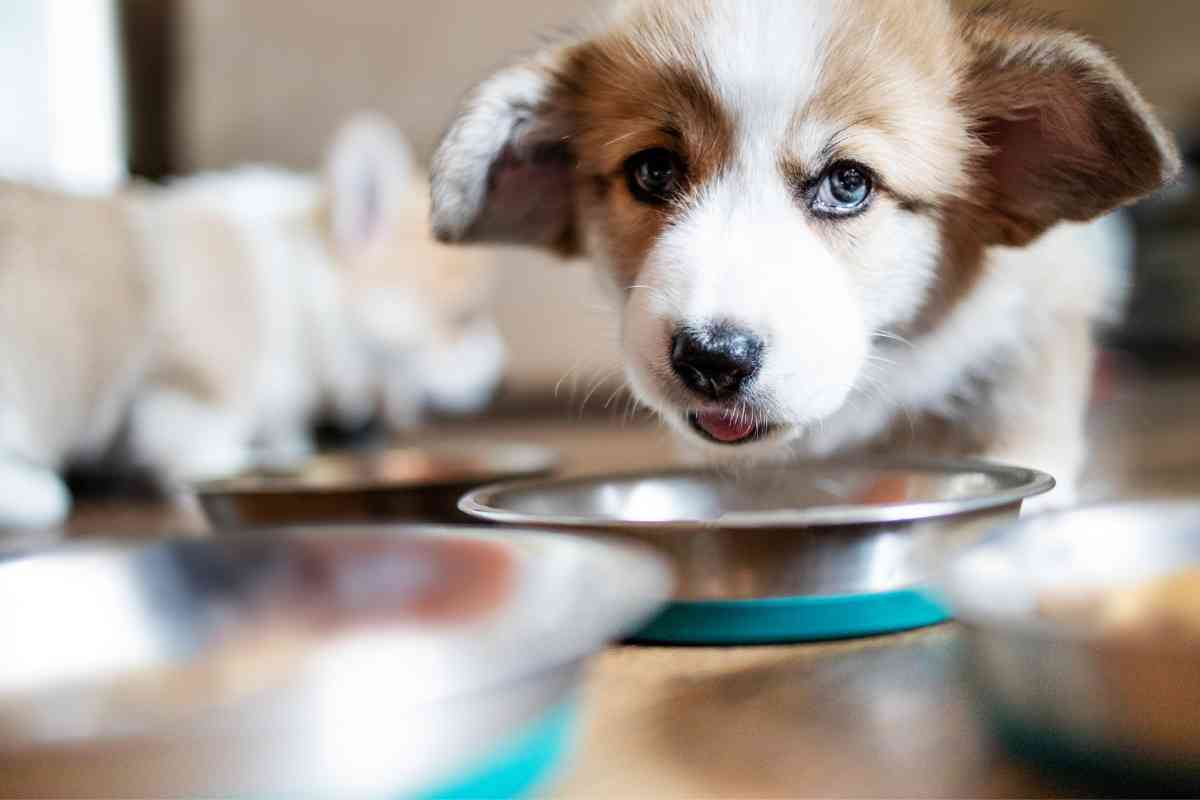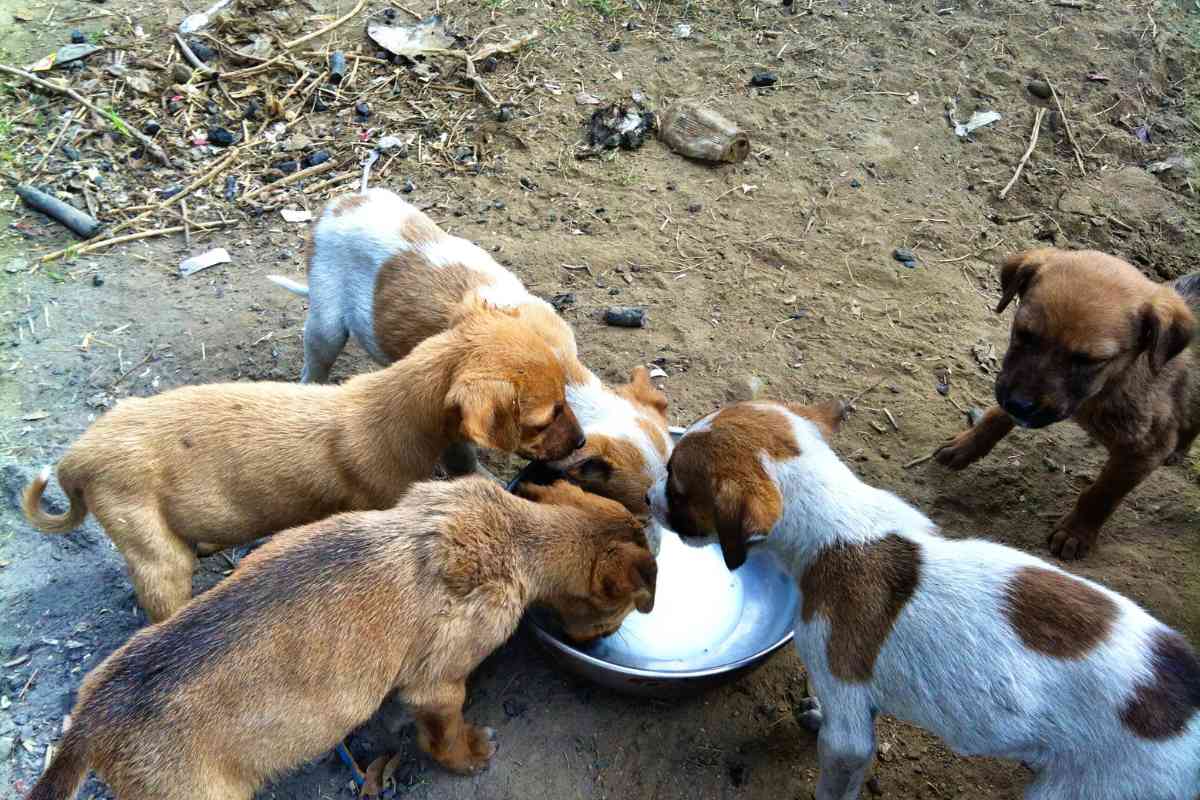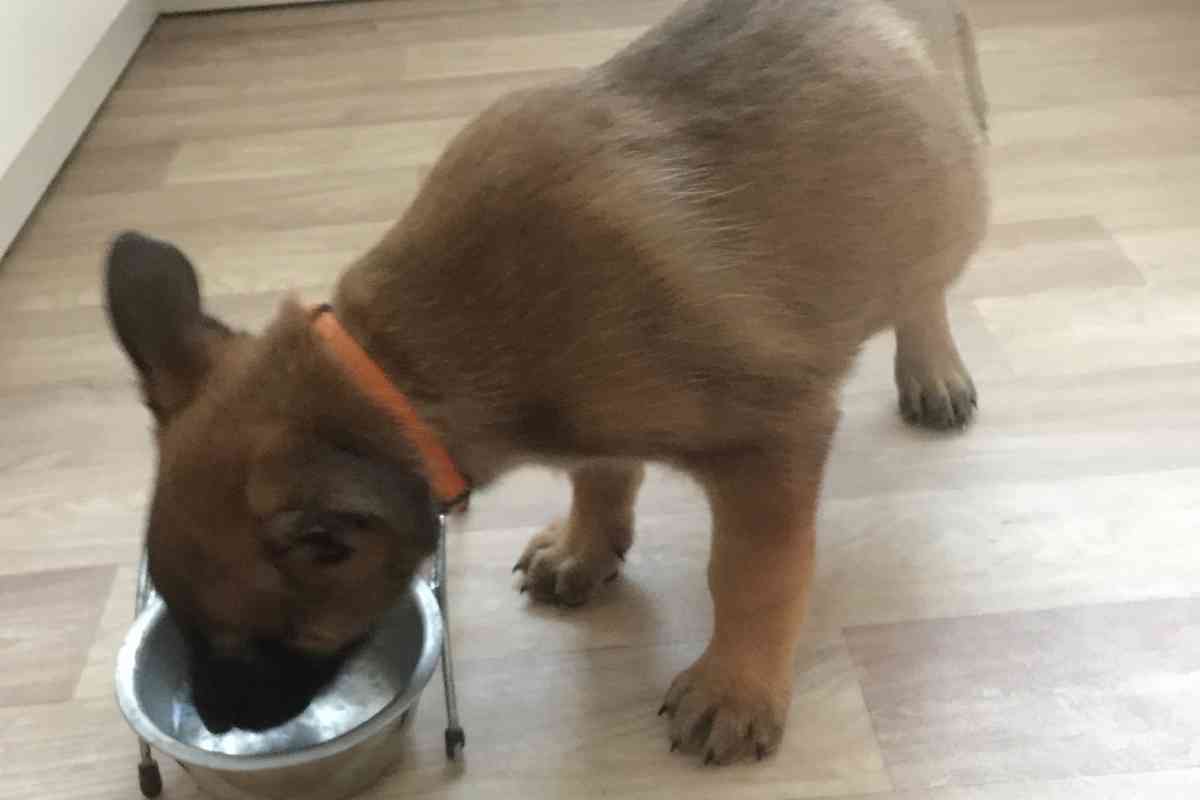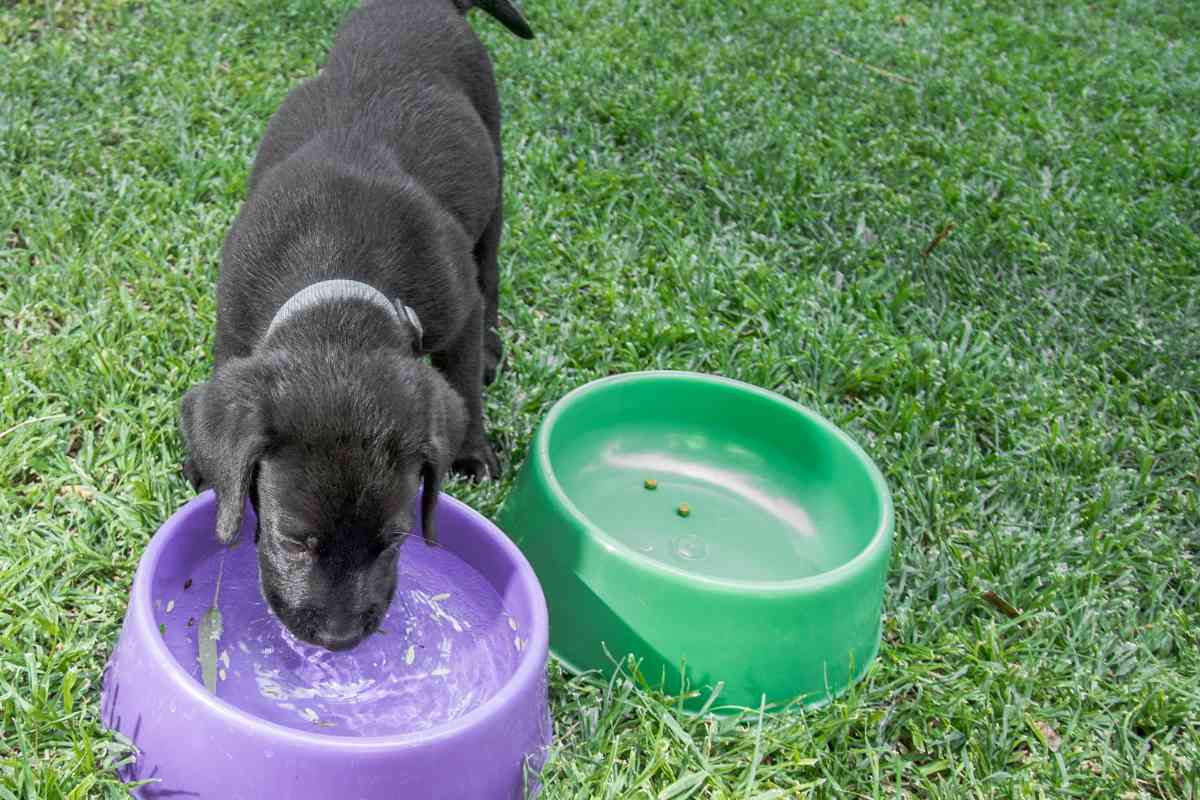Can 3-Week-Old Puppies Drink Water? Essential Hydration Guidelines
Have you ever wondered about the right time to introduce water to a very young puppy? The journey of a puppy’s growth is fascinating, especially when it comes to their hydration needs. At around 3 weeks of age, pups start a new chapter in their development, transitioning from solely nursing on their mother’s milk to exploring new sources of nourishment. This phase is crucial, not just for their digestion, but also for maintaining adequate hydration which is vital for their health and wellbeing.

Related Post! New Puppy Not Drinking Water: What You Can Do At Home!
Can 3-Week-Old Puppies Drink Water?
Yes, 3-week-old puppies can start drinking water as they begin the weaning process from mother’s milk to solid foods. It’s important to introduce water gradually and ensure it is clean and easily accessible. This early introduction of water aids in their digestion and overall hydration during this critical growth phase.
From birth, puppies depend on their mother’s milk for hydration and essential antibodies. This natural source provides enough water content to sustain them during the initial weeks. However, as they approach the 3-week mark, these adorable pets begin to show interest in water. This is a key stage in their development, aligning with the weaning process from milk to dry puppy food and gruel.
Key Takeaways
- Newborn puppies gain most of their hydration from mother’s milk.
- Introducing water at 3 weeks aids the transition to dry food.
- Proper hydration is key to a puppy’s healthy development and can prevent infections.
- Be vigilant for signs of dehydration, especially in very young puppies.
Understanding Puppy Hydration Needs

Introducing Puppies to Drinking Water
Introducing your puppy to drinking water is a step towards independence. A water bowl filled with clean, fresh water should be made available as they begin their journey from nursing to eating solid food. Remember, the amount of water a puppy needs varies based on their breed and pound of body weight.
Related Post! Giving Your Puppy Water For The First Time!
Recognizing Dehydration in Puppies
It’s essential to recognize signs of dehydration in puppies. These include dry gums, sunken eyes, and lack of skin elasticity. A dehydrated puppy may also experience vomiting and decreased urination. Always consult your vet if you suspect your puppy is not receiving enough water.
Safe Water Drinking Practices
Ensuring the safety and accessibility of water for our puppies is paramount. We need to be cautious about water intoxication or overhydration. Since puppies can accidentally inhale water or choke, it’s crucial to constantly monitor their drinking habits.
Optimizing Water Supply for Puppies
To provide the best hydration environment for your puppy, always use a stainless steel or ceramic bowl. These materials keep water fresher and are much easier to clean than plastic alternatives. Remember to change the water several times a day, ensuring that your puppy always has access to fresh water.
When to Consult a Veterinarian
If you notice any symptoms of sickness or dehydration in your puppy that don’t improve with normal water intake, it’s essential to consult a veterinarian. Similarly, signs of overhydration, such as lethargy or disorientation, are a cue to seek professional advice. Timely intervention is key to maintaining their overall health.

Monitoring and Scheduling Water Intake
An effective way to ensure your puppy stays hydrated is by monitoring their water intake in relation to their body weight. Establish a drinking schedule that coincides with meal times and active periods. This approach helps in maintaining proper hydration, vital for their growth and health.
Nutrition and Weaning Stages
Weaning marks a pivotal stage in a puppy’s life, where they move from mother’s milk to solid foods. During this transition, it’s crucial to ensure puppies’ nutritional needs are met with the right balance of solid foods and water intake.
Weaning Puppies onto Solid Foods
Typically, weaning begins when puppies are around three to four weeks old. It’s a gradual process, where solid food is initially mixed with a bit of puppy formula or water to ease digestion. This slow introduction allows puppies’ digestive systems to adapt to new foods like mush or dry kibble.
Balancing Water and Food Intake During Weaning
While water is vital for puppies, it’s essential to introduce it slowly. This approach ensures that it complements their weaning diet without impacting their milk consumption. By four to six weeks, puppies should have more frequent access to clean water as their solid food intake increases.
Selecting Appropriate Puppy Foods
Choosing the right food is crucial. Opt for high-quality, nutrient-dense puppy foods that meet the AAFCO’s growth and development nutritional standards. Such foods support the puppies’ growing bodies and provide essential nutrients.

Puppy Feeding Schedules and Water Access
Establishing a regular feeding schedule helps control the amount of food and water a puppy consumes. This routine teaches puppies to anticipate meals and manage their hunger and thirst. Always ensure fresh water is available, especially after meals.
Puppy Growth and Nutrient Requirements
The weaning phase sees an increased need for protein, calories, vitamins, and minerals to support rapid growth. The diet should cater to their growing body weight, promoting healthy development without leading to excessive weight gain.
Tips for Handling Puppies During Weaning
- Monitor their reactions to new foods and textures.
- Introduce new foods slowly to accommodate teething.
- Employ positive reinforcement to encourage eating, like offering small treats or praise.
- Hydration Importance Beyond the Weaning Period
- Consistent hydration is crucial even after weaning. Ensure that puppies’ water is always accessible to support ongoing growth and prevent dehydration. Monitor their water intake, offering an appropriate ounce of water for their size.
Conclusion: Nurturing Healthy, Hydrated Puppies
By following these guidelines, you can provide a nurturing environment during and after the weaning process. Keep an eye on their water and food intake and be aware of signs of dehydration in puppies. A balanced approach to nutrition and hydration paves the way for the healthy development of your growing puppy.